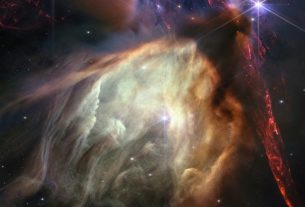NASA on Thursday paid a rich tribute to Michael Collins, the American astronaut who was the command module pilot for the Apollo 11 mission to the moon. Collins, 90, passed away on Wednesday after battling cancer, his family said. Sharing a photograph on Instagram, NASA said the picture was clicked by Collins, who spent seven years of his career as an astronaut with them. The photograph shows the lunar module, “Eagle,” returning to the command module, “Columbia,” after landing on the Moon. The Earth can be seen in the background of the picture. NASA said the picture had all of the humanity in it, save for Collins who captured it.
Collins kept the command module flying while Neil Armstrong and Buzz Aldrin became the first humans to walk on the moon. “We remember Michael Collins, @NASA astronaut and crew member of Apollo 11, who passed away on April 28, 2021,” NASA said.
In the post, NASA also quoted what Collins had said during a transmission to Mission Control on the trip back to Earth from the Moon on July 21, 1969. “This trip of ours to the Moon may have looked, to you, simple or easy… All you see is the three of us, but beneath the surface are thousands and thousands of others, and to all those I would like to say, thank you very much.”
NASA further shared what the mission control stated during Apollo 11. “Not since Adam has any human known such solitude as Mike Collins is experiencing during the 47 minutes of each lunar revolution when he’s behind the Moon with no one to talk to except his tape recorder aboard Columbia. While he waits for his comrades to soar with Eagle from Tranquility Base and rejoin him for the trip back to Earth, Collins, with the help of Flight Controllers here in Mission Control Center has kept the Command Module’s system going.”
Besides, the space agency also released a statement, saying the nation had lost a “true pioneer and lifelong advocate for exploration” in Collins. NASA Administrator Steve Jurczyk said that as the pilot of Apollo 11 some referred to him as the “loneliest man in history”.
“While his colleagues walked on the Moon for the first time, he helped our nation achieve a defining milestone. He also distinguished himself in the Gemini Program and as an Air Force pilot,” he said.
Jurczyk shared that Collins would say, “Exploration is not a choice, really, it’s an imperative,” adding “What would be worth recording is what kind of civilisation we Earthlings created and whether or not we ventured out into other parts of the galaxy.”
Jurczyk added that Collins’ own signature accomplishments, his writings about his experiences, and his leadership of the National Air and Space Museum helped gain wide exposure for the work of all the men and women who have helped our nation push itself to greatness in aviation and space. “There is no doubt he inspired a new generation of scientists, engineers, test pilots, and astronauts.”
